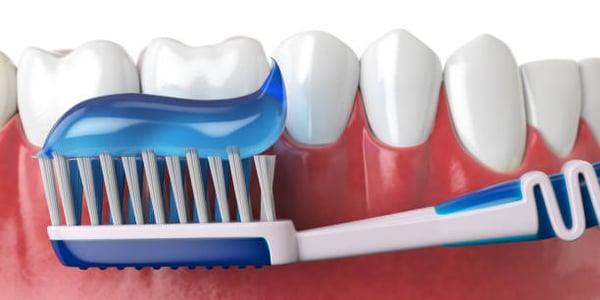
Since you were a kid, you were told to always brush and floss your teeth, right? And we rolled our eyes probably thinking, what’s the big deal? We were always told that by brushing and flossing it’d help with bad breath, cavities and toothaches, but taking pride in the care of your mouth should be one of your main goals of obtaining a healthy life as well. So when you are visiting your dentist next time, you will not be just getting your teeth cleaned or getting restorations completed. You will be on to the next step towards better health for your entire body. The connection between how your oral health affects your overall health is deeper than many people realize!
How Is It Connected?
Our mouths are FULL of bacteria. You may not think so because you can’t see them, but some are harmless little guys, and some are disease-causing. If your oral health is up to par, these bacteria are nothing to worry about at all! BUT, without having that great oral hygiene, all of that “bad bacteria” that’s in there can cause some serious problems like tooth decay and gum disease. Studies have shown to suggest that these bacteria can travel to other parts of our bodies that may be causing other chronic diseases.
So let’s break it down! It can first begin when you have an infection inside your mouth. Let’s say you have gum disease, for example. Your body’s immune system begins action in fighting that infection. And when you’re fighting gum disease, your immune system will release enzymes, (which are biological molecules (or proteins) that act as catalysts and help complex reactions occur everywhere in life), that can actually further damage (yikes!) your gum tissue and the bone supporting around your teeth, which can lead to large problems.
What Problems May Occur?
There are quite a few common conditions that can contribute to poor oral hygiene. This can include:
- Cardiovascular disease — Some studies have discovered that clogged arteries and stroke are linked to the bacteria that is responsible for causing inflammation and infection in the mouth. The bacteria from your gums can find a way into those blood vessels, which can then lead to plaque buildup and eventually cause a heart attack.
- Diabetes — When you have diabetes, the body’s resistance to numerous infections are put at risk. This means that your gums can be more prone to becoming infected if you have diabetes. Periodontal disease (gum disease) can weaken the body’s ability to utilize the insulin that it produces.
- Dementia — According to a few recent studies, people who brush their teeth daily have a lower risk of developing dementia later on in their life. The bacteria that are related to gum disease has been implicated in numerous conditions as mentioned above with heart disease and diabetes. The most common form of dementia, which is Alzheimer’s, have higher concentrations of this bacteria in their brains.
Prevention
Developing a good oral hygiene routine daily is critical to avoid any health complications! Start making a commitment to brush twice a day and flossing (which many don’t like) at least starting out once a day. Also, make sure you keep up to date with your dental appointments every 6 months to have a check-up exam and cleaning. Your body will thank you later on in life. If you ever have any questions or concerns, always consult your dentist your physician.
